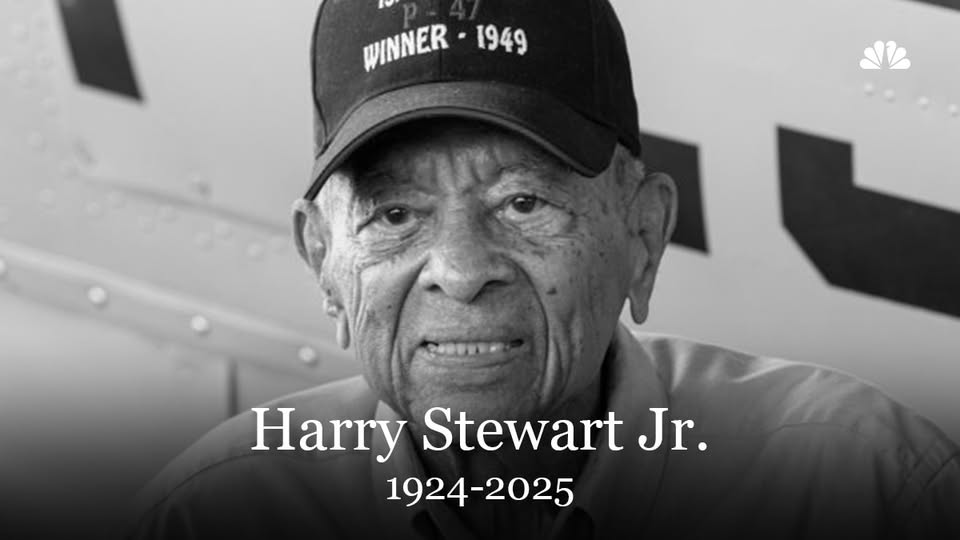Retired Lt. Col. Harry Stewart Jr., a decorated World War II pilot and one of the trailblazing Tuskegee Airmen, has passed away at the age of 100.
Stewart was among the last surviving combat pilots of the renowned 332nd Fighter Group, the nation’s first Black military aviators. The Tuskegee Airmen National Historical Museum confirmed his death, stating that he passed peacefully at his home in Bloomfield Hills, Michigan, on Sunday.
A highly decorated pilot, Stewart earned the Distinguished Flying Cross after downing three German aircraft in an aerial battle on April 1, 1945. He was also part of a four-man Tuskegee Airmen team that won the U.S. Air Force Top Gun competition in 1949—an achievement that went unrecognized for decades.
“Harry Stewart was a kind man of profound character and accomplishment with a distinguished career of service he continued long after fighting for our country in World War II,” said Brian Smith, president and CEO of the Tuskegee Airmen National Historical Museum.
Born on July 4, 1924, in Virginia, Stewart’s family later moved to New York, where his passion for aviation was sparked as a child watching planes at LaGuardia Airport. Inspired by the events of Pearl Harbor, he enlisted at 18 in what was then an experimental program to train Black military pilots. This unit, known as the Tuskegee Airmen for their training location in Alabama, also earned the nickname “Red Tails” due to the distinctive red tips on their P-51 Mustangs.
Reflecting on his wartime service in a 2024 CNN interview, Stewart recalled, “I did not recognize at the time the gravity of what we were facing. I just felt as though it was a duty of mine at the time. I just stood up to my duty.”
Coming from a multicultural neighborhood, Stewart was initially unprepared for the deep-seated segregation and prejudice he encountered in the Jim Crow-era South. Nevertheless, he remained determined to complete his training and earn his wings. The Tuskegee Airmen were later credited with escorting U.S. bombers in Europe and losing significantly fewer bombers than other fighter groups.
Despite his distinguished service, Stewart was denied the opportunity to become a commercial airline pilot due to racial discrimination. Instead, he pursued a degree in mechanical engineering at New York University, later moving to Detroit, where he retired as vice president of a natural gas pipeline company.
In a 2019 interview with Michigan Public Radio, Stewart shared a poignant moment from a recent commercial flight. “When I entered the plane, I looked into the cockpit, and there were two African American pilots one was the co-pilot, and one was the pilot. But not only that, the thing that started bringing the tears to my eyes is that they were both female.”
Last month, the U.S. Air Force briefly removed training materials featuring the Tuskegee Airmen and the Women Airforce Service Pilots (WASPs) in response to a Trump-era crackdown on diversity, equity, and inclusion initiatives. However, the materials were quickly reinstated following bipartisan backlash.
